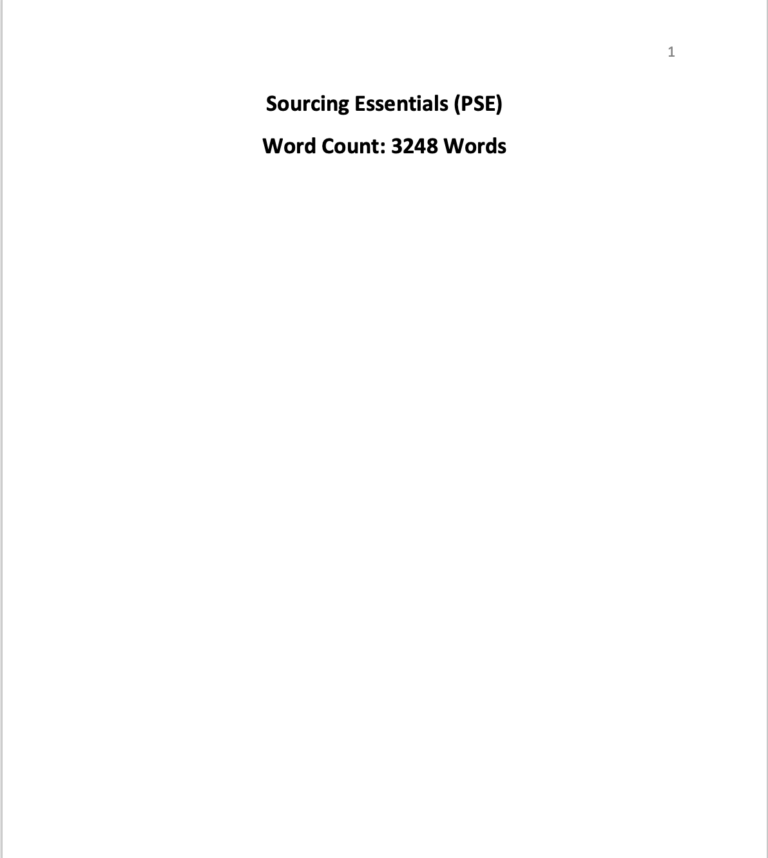Description
Solution
2.3 Working Inclusively and Biulding Positive Relationships at Work
Working Inclusively:
In my approach to working inclusively, I prioritize valuing each person as an individual and recognizing the importance of diversity in our team. I actively seek out and listen to diverse views and opinions, ensuring that everyone feels heard and respected. One of the methods I use is creating an open environment where team members feel comfortable sharing their ideas and perspectives. I have received feedback from a colleague who highlighted my ability to make everyone feel included during meetings. They mentioned that I consistently ensure that quieter voices are encouraged to contribute, which helps in creating a balanced discussion. Reflecting on this, I recognize that my efforts to foster inclusivity have positively impacted our team’s dynamics, making collaboration more effective. However, I also realize that I could improve by being more proactive in reaching out to individuals outside of formal meetings to gather their insights.
Building Positive Working Relationships:
Building positive working relationships is another area where I focus on creating trust and providing support when needed. I believe that mutual respect and understanding are the foundations of strong relationships. I make it a point to show appreciation for my colleagues’ contributions and offer help whenever someone faces challenges. Feedback from a team member mentioned my approachability and willingness to assist, which they felt contributed to a more supportive and collaborative environment. Reflecting on this feedback, I recognize that my approach to building positive relationships has been effective in fostering a strong sense of teamwork. However, I also acknowledge that I can further enhance these relationships by being more consistent in providing feedback and recognition, not just when things are going well, but also when there’s room for improvement.
Please click the following icon to access this assessment in full
Related Papers
(Solution) CIPS Developing Contracts in Procurement and Supply RCU PDC
- This report has focused on evaluating Royal Commission for AlUla (RCU) contract terms and conditions.
- The area of focus in the contract entail its relevance in assisting the management of issues associated with quality, risk of time extension, risk of costs increase and unethical practices impacting the stakeholders.
- Other than this, the performance measures and management in the organisation operations has been put into account.
- For achieving this, RCU operating in the KSA tourism and culture sector has put into account.
- The contract selected is used in most of the services which are sourced by the organisation from different suppliers. This is to define the level of risk and power that each has in the contract implementation.
- Despite of existence of areas of improvement, clauses lacking detail and lack of sufficient protection, the contract terms and conditions are relevant for RCU operations.
- For all the parties and stakeholders involved in a contract implementation, there is a clear risk allocation and management. This is with the performance being measured and monitored based on their interests.
- There is a need for investing in modernised approaches intended to protect the organisation from the battle of the forms.
(Solution) Explain factors that need to be considered when managing performance. (AC4.2)
(Solution) 7C001 Question 6 Public Policy Development and its Impact on Work and Employment
(Solution) 5CO01 (AC3.1) Discuss the links between the employee lifecycle and different people practice roles
(Solution) 7CO03 Learning Plan own approaches to decision-making on complex issues, taking ownership to remedy mistakes
(Solution) CIPS Sourcing Essentials Assessment
- In this assessment, sourcing approaches have been identified and holistically reviewed. This is in line with RCU organisation IT spend category. This is further compared with payment services, document management category which is office suppliers and postal services.
- For evaluating the identified spend categories, various tools have been selected which are Kraljic Analysis Tool, Mendelow’s Analysis Tool for Stakeholder analysis and the Maslow Hierarchy of needs.
- Further, by using the SWOT analysis, the internal and external factors of the sourcing have been selected. A further analysis by use of Peter Block Grid’s has been applied to evaluate the interests of stakeholders to source appropriate position.
- The findings indicate that RCU adopts the best sourcing approach based on their needs.
- Finally, by using Carter’s 10Cs model, the best practice for pursuing suppliers appraisal has been provided for IT spend category.



